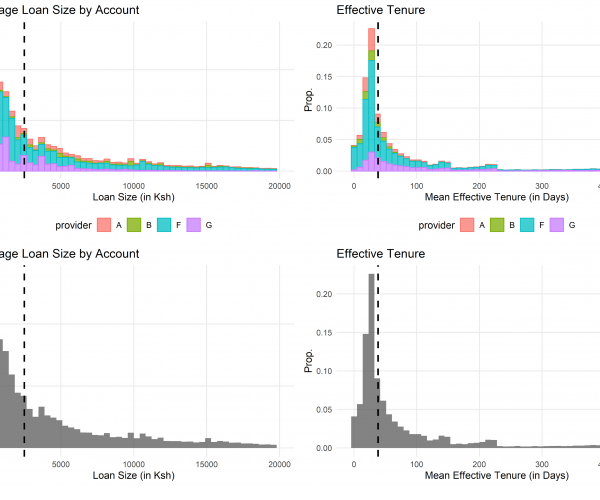Consumers’ Financial Health: Key Lessons for Digital Lenders By Boniface Kamiti, Manager, Consumer Protection – Competition Authority of Kenya
Kenya has in the past decade experienced an unprecedented growth in digital financial services, with innovative products reshaping how we, for instance, order meals, honor insurance premiums, purchase electricity units, and undertake financial transactions.
Our already active e-commerce sector was turbocharged by the Covid-19 pandemic. Mobile money is the ubiquitous form of payments. Further, a proliferation of mobile loan apps has bridged the financial inclusion gap, albeit with some inherent challenges.
Data from the Central Bank of Kenya indicates that the value of mobile money transactions rose by about a third to Ksh. 6.2 trillion in 2021. Further, the 2019 FinAccess Survey reveals that 79% of adult Kenyans using financial services have mobile money accounts, with a majority operating multiple accounts. These access points complement the traditional sources of finance and demonstrate the power and role of digital technologies in supporting economic growth.
Further, mobile money has been a major driver of formal inclusion in Kenya with the FinAccess Survey 2021 indicating that, despite the impact of the COVID-19 pandemic, financial inclusion expanded to 84% in 2021 from 83% in 2019. Financial inclusion in the 2006 baseline survey stood at 27%.
Worryingly, the financial health of the adult population deteriorated by 5 percentage points in the two years under review to 17%. This is perhaps attributable to the fact that a majority of the digital loans are for consumption purposes and that many borrowers take out multiple loans that have high interest and penalization rates. The result is that thousands of borrowers default and, in some cases, are subjected to unconscionable debt collection tactics.
Even as all stakeholders, including regulators, actively support financial inclusion, we should ask ourselves a critical question; what role can digital lenders play in enhancing the financial health of Kenyans?
Financial health is the extent to which a person or family can manage their current financial obligations and be reasonably confident about their future. It refers to a situation where a consumer can settle their bills as they fall due and still have resources left over. However, this is usually not the case for the majority of digital loan customers.
The adoption of services such as digital finance is associated with consumer risks such as over-indebtedness which could be attributed to the high fees which vary between 7.5% and 10% per month. Other concerns in digital finance include data privacy breaches, hidden charges and lack of customer redress mechanisms.
At the heart of financial health is therefore, financial consumer protection. In 2016, the Competition Authority of Kenya (CAK) investigated the level of transparency and disclosure by Digital Financial Services (DFS) providers. It was established they were not disclosing fees and charges for transactions conducted through SIM toolkits, USSD and mobile applications.
The CAK ordered them to remedy these infractions by, among others, disclosing all fees and charges prior to consumers completing transaction and always provide consumers with a detailed debit receipt post-transaction, including through text messages. This resulted in an improvement of consumers’ awareness level regarding applicable fees and charges from 25% to 80%.
Last year, a digital credit market inquiry by the CAK identified several risks for consumers, including the high cost of products and low awareness about credit terms, including fees and applicable penalties for default. This impedes consumers’ ability to make informed borrowing decisions, thereby negatively impacting their financial health. We positively note that our recommendations regarding regulation of digital lenders, specifically those aimed at addressing consumer welfare concerns, were adopted in the Central Bank of Kenya (Amendment) Act, 2021.
However, digital lenders should not wait for regulatory intervention to nudge them into doing right by consumers. Rather, they should proactively develop products that attend to the concerns raised and actively work towards enhancing customers’ financial health. Loan products which facilitate customers to spend and save wisely, borrow responsibly, and plan for the future will, over time, reduce over-indebtedness and the prevailing high default rates.
Digital lenders should also adopt and inculcate financial consumer protection principles and practices in their business processes. These include instituting effective complaint redress mechanisms, protecting customers’ data, ensuring timely and full disclosure of fees and charges, and establishing financial literacy programs for consumers.
It is therefore timely that this year’s World Consumer Rights Day (WCRD), which is commemorated annually on March 15, is themed “Fair Digital Finance.” The WCRD raises global awareness about consumer rights and needs, promoting and protecting their basic rights, and protesting against market conduct that undermines those rights.
You may submit comments through: info@cak.go.ke










Comments :